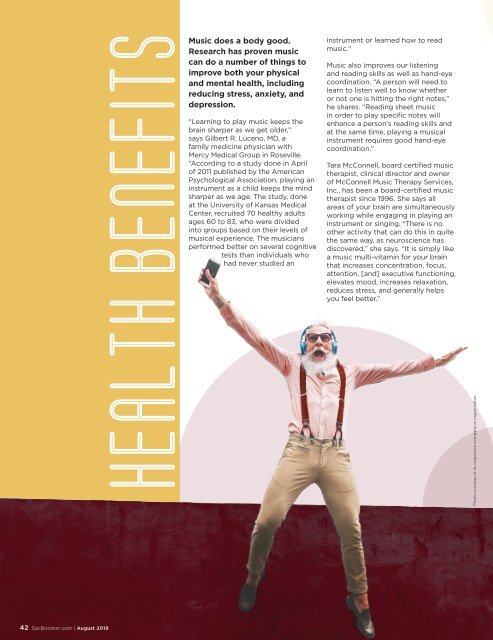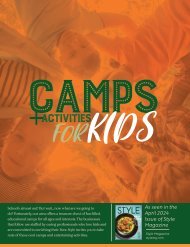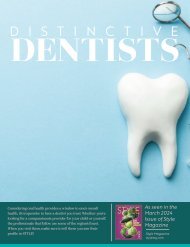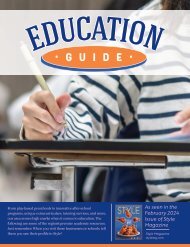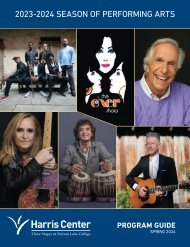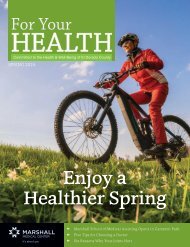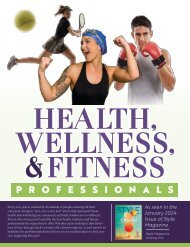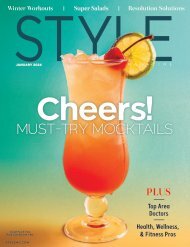BOOMER Magazine: August 2019
Most of the soundtrack of my life is now found only on the oldie’s stations. But you can wander down musical memory lane by reading Boomer’s curated summer playlist (page 45) and let us know if we missed your favorites! Find ways to make sure you get your zzz’s on page 24. As we age sleep becomes even more essential to being healthy (and alert!) each day. You might need some even more relaxing music if your retirement planning has fallen prey to the 7 Sins of Retirement Planning on page 33. These great articles, and more, can be found in this issue of Boomer!
Most of the soundtrack of my life is now found only on the oldie’s stations. But you can wander down musical memory lane by reading Boomer’s curated summer playlist (page 45) and let us know if we missed your favorites! Find ways to make sure you get your zzz’s on page 24. As we age sleep becomes even more essential to being healthy (and alert!) each day. You might need some even more relaxing music if your retirement planning has fallen prey to the 7 Sins of Retirement Planning on page 33. These great articles, and more, can be found in this issue of Boomer!
You also want an ePaper? Increase the reach of your titles
YUMPU automatically turns print PDFs into web optimized ePapers that Google loves.
Health Benefits<br />
Music does a body good.<br />
Research has proven music<br />
can do a number of things to<br />
improve both your physical<br />
and mental health, including<br />
reducing stress, anxiety, and<br />
depression.<br />
“Learning to play music keeps the<br />
brain sharper as we get older,”<br />
says Gilbert R. Luceno, MD, a<br />
family medicine physician with<br />
Mercy Medical Group in Roseville.<br />
“According to a study done in April<br />
of 2011 published by the American<br />
Psychological Association, playing an<br />
instrument as a child keeps the mind<br />
sharper as we age. The study, done<br />
at the University of Kansas Medical<br />
Center, recruited 70 healthy adults<br />
ages 60 to 83, who were divided<br />
into groups based on their levels of<br />
musical experience. The musicians<br />
performed better on several cognitive<br />
tests than individuals who<br />
had never studied an<br />
instrument or learned how to read<br />
music."<br />
Music also improves our listening<br />
and reading skills as well as hand-eye<br />
coordination. “A person will need to<br />
learn to listen well to know whether<br />
or not one is hitting the right notes,”<br />
he shares. “Reading sheet music<br />
in order to play specific notes will<br />
enhance a person’s reading skills and<br />
at the same time, playing a musical<br />
instrument requires good hand-eye<br />
coordination.”<br />
Tara McConnell, board certified music<br />
therapist, clinical director and owner<br />
of McConnell Music Therapy Services,<br />
Inc., has been a board-certified music<br />
therapist since 1996. She says all<br />
areas of your brain are simultaneously<br />
working while engaging in playing an<br />
instrument or singing. “There is no<br />
other activity that can do this in quite<br />
the same way, as neuroscience has<br />
discovered,” she says. “It is simply like<br />
a music multi-vitamin for your brain<br />
that increases concentration, focus,<br />
attention, [and] executive functioning,<br />
elevates mood, increases relaxation,<br />
reduces stress, and generally helps<br />
you feel better.”<br />
Photo courtesy of its respective company or organization.<br />
42 SacBoomer.com | <strong>August</strong> <strong>2019</strong>


